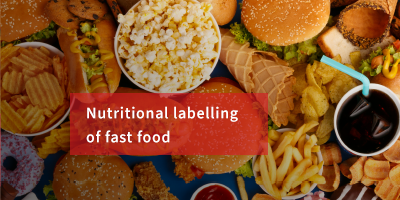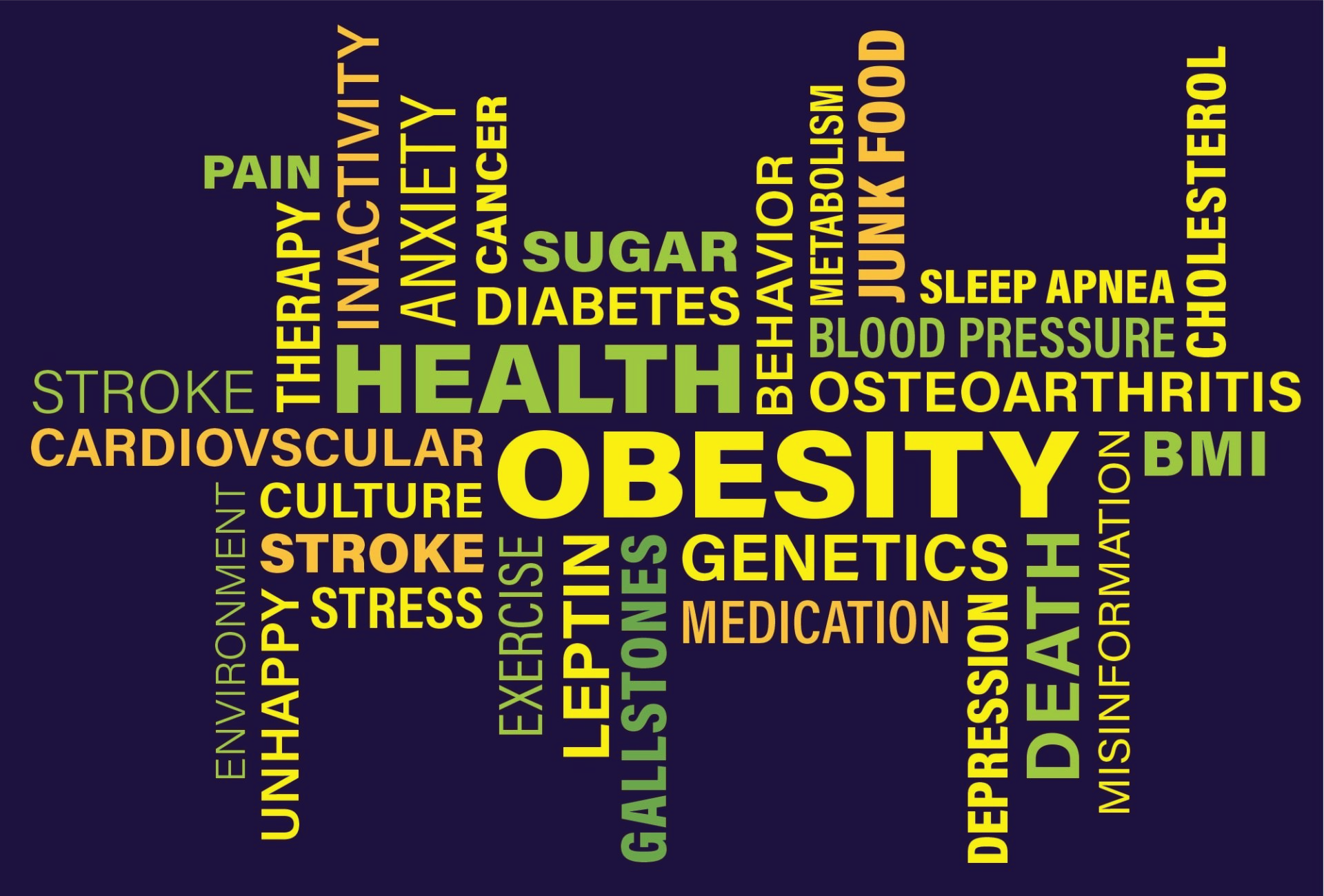OBESITY: ARTICLE What Causes Obesity
by ACTION
The term obese describes a person who's very overweight, with a lot of body fat.
In some cases, underlying medical conditions may contribute to weight gain. These include:
- an under-active thyroid gland (hypothyroidism) – where your thyroid gland does not produce enough hormones
- Cushing's syndrome – a rare disorder that causes the over-production of steroid hormones
Causes of Morbid Obesity
The term obese describes a person who's very overweight, with a lot of body fat.
How to tell if you're obese
The most widely used method to check if you're a healthy weight is body mass index (BMI).
BMI is a measure of whether you're a healthy weight for your height. You can use the BMI healthy weight calculator to work out your score.
BMI is not used to diagnose obesity because people who are very muscular can have a high BMI without much fat.
But for most people, BMI is a useful indication of whether they're a healthy weight.
A better measure of excess fat is waist size, which can be used as an additional measure in people who are overweight (with a BMI of 25 to 29.9) or moderately obese (with a BMI of 30 to 34.9).
Generally, men with a waist size of 94cm or more and women with a waist size of 80cm or more are more likely to develop obesity-related health problems.
How to measure waist circumference
Calories
The energy value of food is measured in units called calories. The average physically active man needs about 2,500 calories a day to maintain a healthy weight, and the average physically active woman needs about 2,000 calories a day.
This amount of calories may sound high, but it can be easy to reach if you eat certain types of food. For example, eating a large takeaway hamburger, fries and a milkshake can total 1,500 calories – and that's just 1 meal.
Another problem is that many people are not physically active, so lots of the calories they consume end up being stored in their body as fat.
Poor Diet
Obesity does not happen overnight. It develops gradually over time, as a result of poor diet and lifestyle choices, such as:
- eating large amounts of processed or fast food – that's high in fat and sugar
- drinking too much alcohol – alcohol contains a lot of calories, and people who drink heavily are often overweight
- eating out a lot – you may be tempted to also have a starter or dessert in a restaurant, and the food can be higher in fat and sugar
- eating larger portions than you need – you may be encouraged to eat too much if your friends or relatives are also eating large portions
- drinking too many sugary drinks – including soft drinks and fruit juice
- comfort eating – if you have low self-esteem or feel depressed, you may eat to make yourself feel better.
Lack of physical activity
Lack of physical activity is another important factor related to obesity. Many people have jobs that involve sitting at a desk for most of the day. They also rely on their cars, rather than walking or cycling.
For relaxation, many people tend to watch TV, browse the internet or play computer games, and rarely take regular exercise.
If you're not active enough, you do not use the energy provided by the food you eat, and the extra energy you consume is stored by the body as fat.
The Department of Health and Social Care recommends that adults do at least 150 minutes of moderate-intensity aerobic activity, such as cycling or fast walking, every week. This does not need to be done all in a single session, but can be broken down into smaller periods. For example, you could exercise for 30 minutes a day for 5 days a week.
Genetics
Some people claim there's no point trying to lose weight because "it runs in my family" or "it's in my genes".
While there are some rare genetic conditions that can cause obesity, such as Prader-Willi syndrome, there's no reason why most people cannot lose weight.
It may be true that certain genetic traits inherited from your parents – such as having a large appetite – may make losing weight more difficult, but it certainly does not make it impossible.
In many cases, obesity is more to do with environmental factors, such as poor eating habits learned during childhood.
Medical reasons
In some cases, underlying medical conditions may contribute to weight gain. These include:
- an under-active thyroid gland (hypothyroidism) – where your thyroid gland does not produce enough hormones
- Cushing's syndrome – a rare disorder that causes the over-production of steroid hormones
However, if conditions such as these are properly diagnosed and treated, they should pose less of a barrier to weight loss.
Certain medicines, including some corticosteroids, medications for epilepsy and diabetes, and some medications used to treat mental illness – including antidepressants and medicines for schizophrenia – can contribute to weight gain.
Weight gain can sometimes be a side effect of stopping smoking.
More about Obesity & Resent Articles and Events

Obesity rates are rapidly increasing in the African Region, as in most parts of the world.
There is a common misconception that obesity and other noncommunicable diseases (NCDs) only occur among the wealthy.
Strategy for the prevention and control of Obesity in South Africa - 2015 - 2020
Act today for a healthier future. HSF supports the World Obesity Federation (WOF) in the initiative to stimulate and support practical actions to address obesity.
ACTION
African Centre for Obesity Prevention
PARTNERS
Join our growing list of partners, including:
Preventing obesity for a healthier tomorrow
Business Hours
- Mon - Fri
- -
- Sat - Sun
- Closed
About Us
Contact
Office:
+27 10 447 3721
E-mail:






